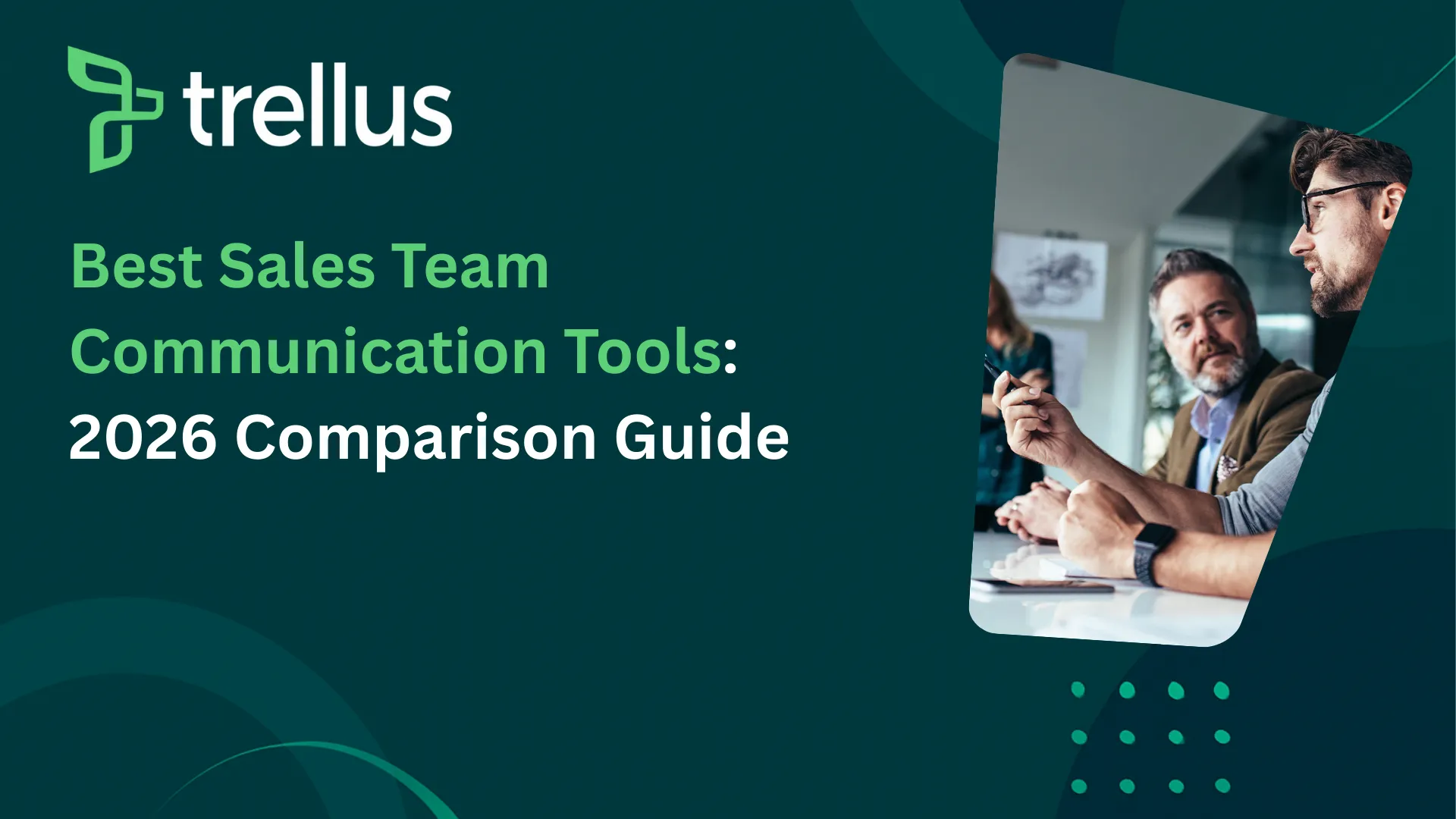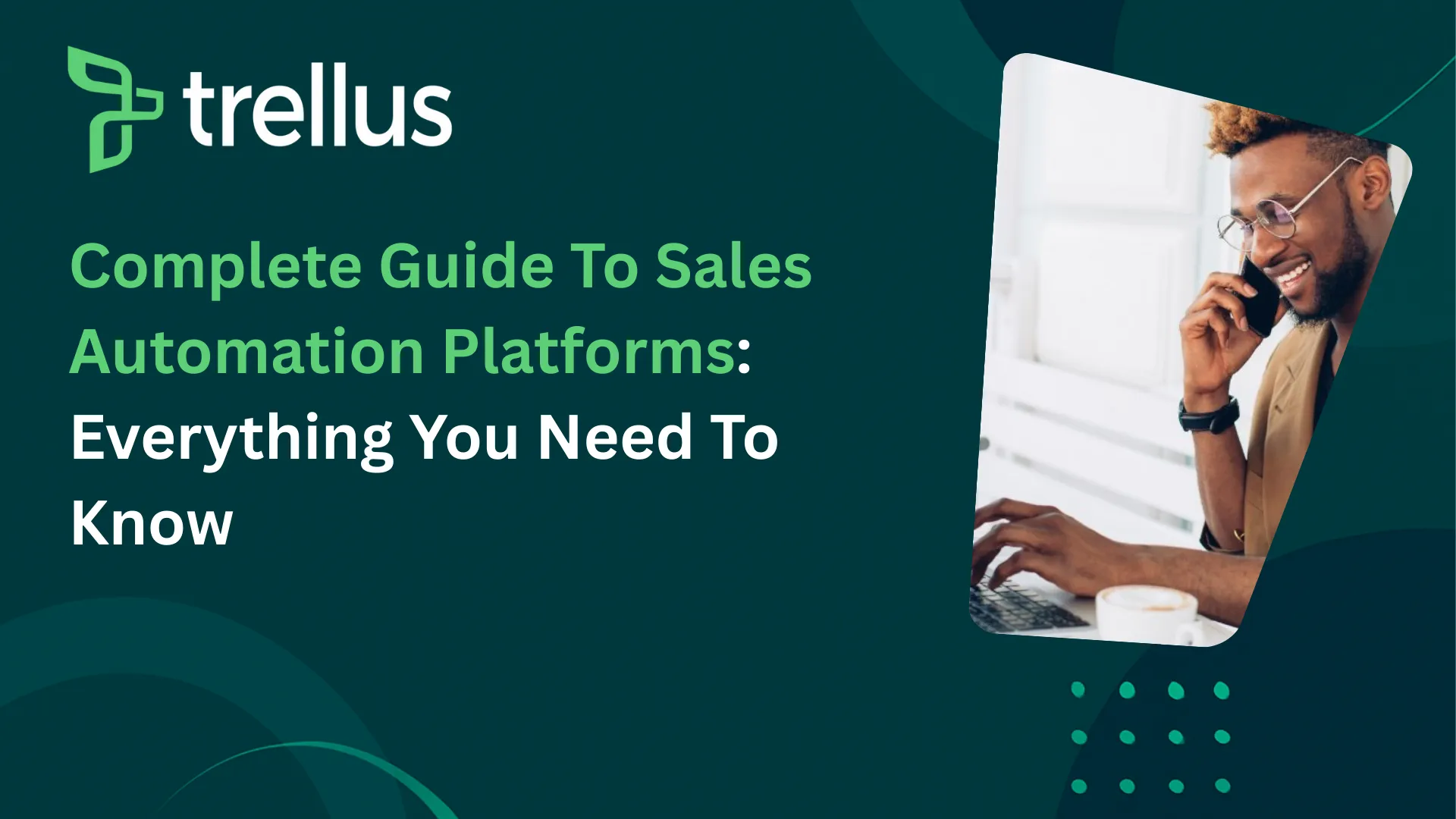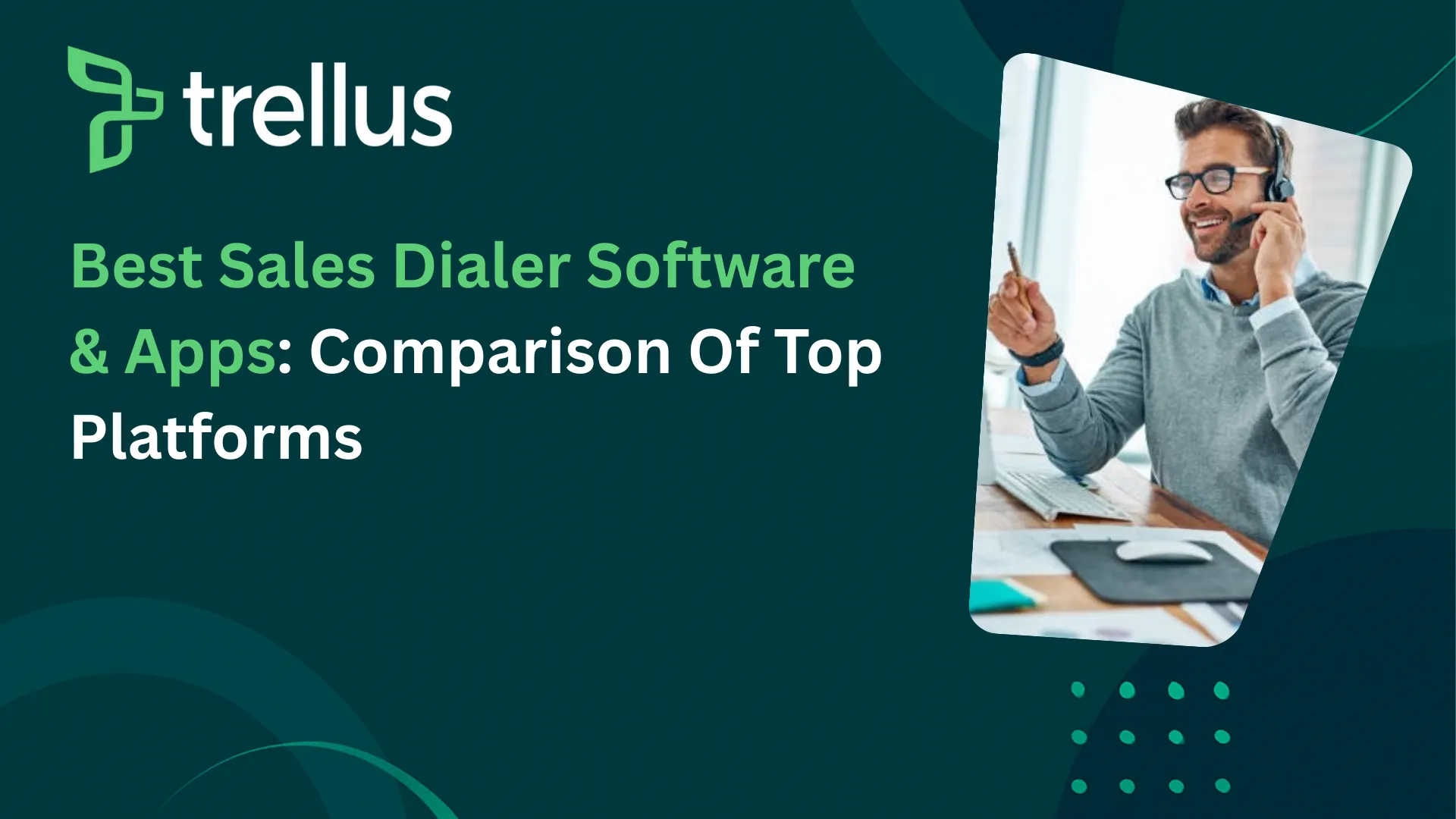
Our Top Picks


Sales teams are always on the lookout for new tech to make their jobs easier.
As long as technology is reshaping the way new tools are introduced in the market for better compliance, workflow automation, customer service, etc., we know that we can count on these programs as more of a means to an end.
From that point of view, we have seen tremendous growth in different sectors, niches, and anything that has to do with software involvement. Think of CRMs, the mundane ones, calling software from several years ago, and compare them to whatever the current state of these tools is in the market, and you’ll see a huge difference.
In other words, it comes down to the fact that artificial intelligence isn’t just another tool; it’s a game-changer for how we connect with prospects, personalize outreach, and close deals faster.
That being said, for argument’s sake, if it’s your first time using programs with embedded AI Features, or you have never been exposed to automation before, you need to know how ai is transforming businesses, especially the sales sector.
Alongside that, we’ll also highlight several different factors related to ai driven sales strategies for your business, and of course, different tips on how to increase your sales with artificial intelligence.
What is Artificial Intelligence?

At its core, artificial intelligence (AI) is computer technology designed to mimic human thinking. It’s not just about crunching numbers—it’s about understanding patterns, making decisions, and even improving over time.
Think of AI as a super-smart assistant that never gets tired, never overlooks details, and constantly learns from every interaction.
In a broader sense of things, artificial intelligence is everywhere. Think of the technology’s use cases related to helping doctors diagnose diseases, optimizing supply chains, and even powering the recommendations on your favorite streaming service.
And, of course, in sales?
It’s turning traditional processes upside down in the best possible way.
The Role of Artificial Intelligence in Sales and Marketing

Sales has always been about relationships, intuition, and persuasion.
But today, it’s also about data—tons of it.
The challenge?
Humans can’t process massive datasets fast enough to make real-time decisions. That’s where artificial intelligence in sales and marketing steps in.
AI helps sales teams:
- Analyze customer behavior – Spot trends in buying habits, email engagement, and social media activity.
- Personalize outreach at scale – Craft tailored messages based on a lead’s past interactions.
- Predict future sales trends – Use historical data to forecast what’s coming next.
- Automate repetitive tasks – Free up time for sales reps to focus on high-value conversations.
The best part with all of this going on simultaneously is that A.I. doesn’t replace human salespeople—it makes them more effective.
Speaking of human replacement, we did talk about artificial intelligence in the context of becoming so sentient that it’d either eliminate the involvement of the human element or reduce different types of jobs to automated workflows.
Yes, it is a possibility, and that has happened already. But, at the end of the day, the human element and that “human touch” in the job sector is always going to be there. Especially in sales because people like to deal with people, not robots.
Machine Learning: The Secret Sauce Behind AI Sales Tools
Moving on, you’ve probably heard the term "machine learning" thrown around. But what does it mean for people in the sales industry, especially managers and business owners, right now?
Machine learning is a type of AI that improves automatically through experience. Instead of just following pre-set rules, it learns from data and adjusts its approach to get better results.
A Real-World Example: AI-Powered Email Campaigns
Take JPMorgan, for example. They used machine learning to optimize their email marketing.
Instead of relying on human copywriters to test different subject lines, their AI analyzed past campaigns, identified what worked, and generated new email variations on its own. The result? A significant 400 %+ increase in click-through rates.
That’s the power of machine learning in sales—it doesn’t just automate tasks; it continuously refines them for better performance.
3 Key Types of AI Transforming Sales
Not all AI is created equal. Depending on your sales goals, different AI tools can help in unique ways. Here are the three most impactful types of artificial intelligence in sales right now:
1. Natural Language Processing (NLP) – Making Conversations Smarter
NLP allows computers to understand, interpret, and even generate human language. You’ve likely interacted with NLP through chatbots, voice assistants like Siri, or even spam filters that detect sketchy emails.
In sales, NLP powers:
- Chatbots – Answer FAQs, qualify leads, and book meetings 24/7.
- Email drafting – Generate personalized cold emails in seconds.
- Sentiment analysis – Detect customer emotions in calls and messages.
2. AI Analytics – Turning Data into Actionable Insights
Sales teams drown in data—CRM entries, call logs, email opens, social media interactions. AI analytics tools sift through this chaos to uncover hidden patterns.
For example, AI can:
- Identify high-value leads – Based on engagement history and buying signals.
- Predict churn risk – Flag customers who might leave before it’s too late.
- Optimize pricing strategies – Analyze market trends to suggest the best pricing.
3. Smart Process Automation – The Best of Both Worlds
This type of AI blends automation with human oversight. It handles routine tasks but knows when to loop in a human for complex decisions. Over time, it learns from those decisions to improve future workflows.
A common use case? Automated follow-ups where AI schedules reminders, sends emails, and even suggests the best time to reach out—while letting reps handle the actual conversation.
The Cost Factor Behind Artificial Intelligence In Sales - Everything You Need To Know

Getting artificial intelligence in sales set up properly isn't always cheap or easy. But before you let that scare you off, hear me out. The right approach can make this work for businesses of nearly any size, and the payoff is absolutely worth it.
Why Most Companies Struggle With AI Implementation
Gartner nailed it when they pointed out that the biggest headache for teams trying to use artificial intelligence sales tools isn't the technology itself - it's getting everyone on the same page.
It might be possible that your marketing team is using one set of customer data, sales has their own system, and customer service is working from yet another platform. No wonder campaigns end up looking like a group project where no one actually collaborated.
The truth about how to increase sales with AI effectively starts with breaking down these walls. It's not just about buying fancy software - it's about getting your entire organization aligned around the same customer insights.
When marketing, sales, and service all work from the same playbook, that's when the magic happens.
What This Costs (And How to Budget Smart)
Now for the part everyone wants to know - what's this going to cost me?
The answer isn't simple because artificial intelligence in sales and marketing solutions range from free Chrome extensions to enterprise systems costing six figures annually. But here's how to think about it:
For small businesses, you might start with tools like:
- AI-powered email assistants (50−300/month)
- Basic chatbot solutions (100−500/month)
- Entry-level CRM with AI features (15−50/user/month)
Mid-sized companies typically invest in:
- More sophisticated generative AI for sales content (500−2,000/month)
- Advanced conversation intelligence (200−800/user/year)
- Marketing automation with AI capabilities (1,000−5,000/month)
Enterprise organizations often build custom solutions that can run $50,000+ annually but handle massive scale.
The smart move?
We always recommend starting small. It’s safe, mostly risk-free, and the collateral isn’t huge, in case you fail.
Prove the concept with one or two tools that solve your most painful bottlenecks. Once you see results, you'll have the data and confidence to expand your AI toolkit.
Making It Work Without Breaking the Bank
Here's the good news - you don't need to drop six figures to start seeing benefits from artificial intelligence sales technology. Some of the most effective strategies begin with free or low-cost options:
- Use built-in AI features in tools you already pay for (many CRMs now include basic AI)
- Try free trials of different solutions before committing
- Focus first on high-impact areas like lead scoring or email personalization
- Train your team properly so you actually use what you pay for
The most important investment isn't the software itself - it's the time to set it up right and get your team comfortable using it.
The Hidden Costs No One Talks About
Beyond the software price tags, there are other resources you'll need to make artificial intelligence in sales and marketing work:
- Time for setup and integration (usually 2-4 weeks for proper implementation)
- Training for your team (plan for at least 4-8 hours per person)
- Ongoing maintenance and optimization (1-2 hours weekly)
- Potential need for consulting help (especially for complex setups)
The companies that succeed with generative AI for sales are the ones that budget for these hidden costs upfront. They know the software is just the starting point - the real value comes from using it effectively over time.
How to Get Leadership Buy-In (And Budget Approval)
.webp)
If you need to convince your boss or stakeholders to invest in artificial intelligence sales tools, focus on the numbers:
- Calculate how much time your team wastes on manual tasks AI could automate
- Estimate the revenue lift from even small improvements in conversion rates
- Find case studies from similar companies showing their ROI
- Start with a pilot program to demonstrate results before going all-in
Remember, the goal isn't to implement AI for its own sake - it's about how to increase sales with AI in ways that directly impact your bottom line.
When you frame it that way, the investment becomes much easier to justify. Getting started is a bit of a challenge. So on that side of the things, look for free ai tools.
For instance, free ai cold calling software, free ai conversation calling program, something to boost your LinkedIn collaborations, free sales enablement programs, etc. See, if you can hook up your team through a trial program, and then measure efficiency and performance.
That way, it’s easier to convince your manager and business owner to make the switch.
How to Increase Sales with AI: Practical Strategies
AI sounds impressive, but how do you actually use it to boost revenue? Here are some proven tactics:
1. Hyper-Personalized Outreach
Generic emails get ignored. AI helps tailor messages by analyzing a lead’s:
- Job title
- Industry
- Past interactions
- Social media activity
Tools like HubSpot’s AI-powered email assistant or Copy.ai can generate personalized opening lines that feel human-written.
2. Smarter Lead Scoring
Not all leads are equal. AI ranks prospects based on:
- Engagement level (email opens, website visits)
- Firmographics (company size, industry)
- Buying intent (content downloads, demo requests)
This helps reps prioritize the hottest leads instead of wasting time on dead ends.
3. AI-Powered Sales Coaching
AI can analyze call recordings to:
- Identify successful talking points.
- Flag missed opportunities.
- Suggest improvements for future conversations.
Platforms like Trellus provide real-time cues to help reps refine their pitch, arguments to cold calling objections, so on and so forth.
4. Predictive Sales Forecasting
Instead of guessing next quarter’s revenue, AI crunches:
- Historical sales data
- Market trends
- Current pipeline health
This gives sales leaders a clearer picture of what’s coming—and where to focus efforts.
How Artificial Intelligence in Sales Can Boost Your Revenue
You've heard all the buzz about artificial intelligence in sales, but here's what really matters: how does this actually put more money in your pocket?
The truth is, AI isn't some futuristic fantasy anymore. It's here, it's working for sales teams right now, and it's helping them crush their quotas in ways that would have seemed impossible just a few years ago.
The only thing that matters is the selection of the type ai technology. With a pricey ai tool that either doesn’t work as advertised, or despite all the good features, doesn't fit your use case, your business will not flourish.
Speaking of regression, here’s the part that you need to pay attention to….

AI That Feels Human
Remember when "personalization" meant adding someone's first name to an email template?
The modern-day iteration of artificial intelligence sales tools can craft messages that feel like they were written specifically for each prospect - because they basically were.
Still, even with AI-generated content, the human touch matters. To truly connect with prospects, sales teams often humanize text so that outreach feels authentic, polished, and emotionally engaging.
Imagine having an assistant who studies every prospect's LinkedIn profile, their company website, their recent social posts, and even how they've interacted with your previous emails. Then that assistant writes the perfect opening line that actually makes them want to respond. That's what generative AI for sales can do right now.
Tools like HubSpot's AI email assistant don't just spit out generic templates. They create messages that reference specific details about the person's role, their company's recent news, and even the challenges someone in their position likely faces. The result? Emails that get opened, read, and - most importantly - replied to.
Smarter Lead Scoring: Stop Chasing Ghosts
Here's a painful truth most salespeople know but hate to admit: We waste way too much time on leads that were never going to buy. Artificial intelligence in sales and marketing fixes this by doing the heavy lifting of figuring out who's actually worth your time.
Modern AI lead scoring looks at way more than just job titles or company size. It tracks how often someone opens your emails, what pages they visit on your site, whether they've downloaded content, and even how long they spend reading your proposals. Then it crunches all that data to tell you exactly who's showing real buying signals versus who's just kicking tires.
The beauty is that the system keeps getting smarter over time.
The more deals you close (or lose), the better it becomes at spotting patterns that predict success. It's like having a seasoned sales veteran whispering in your ear about which opportunities to prioritize.
Your Always-On Sales Coach
Here's where artificial intelligence sales tools get really interesting. Platforms like Trellus act like having a top sales coach listening to every call you make, but without the awkwardness of someone actually judging you in real time.
After each conversation, the AI breaks down what worked and what didn't. Did you talk too much about features when the prospect cared about ROI? Did you miss subtle buying signals? The system catches all these moments and gives you specific suggestions for improvement.
What's crazy is that some tools now offer real-time prompts during calls. If a prospect mentions a specific objection, the AI might suggest a proven response right there in your ear. It's like having the collective wisdom of your entire sales team backing you up on every call.
The Future of Artificial Intelligence in Sales and Marketing
AI isn’t just a passing trend—it’s evolving rapidly. Here’s where things are headed:
- Voice AI for sales calls – Real-time transcription, sentiment analysis, and even live coaching during calls.
- AI-driven content creation – From blog posts to social media ads, AI will help marketers produce high-quality content faster.
- Hyper-accurate buyer personas – AI will analyze thousands of data points to create ultra-detailed customer profiles.
The bottom line? Sales teams that embrace AI early will have a massive competitive edge.







